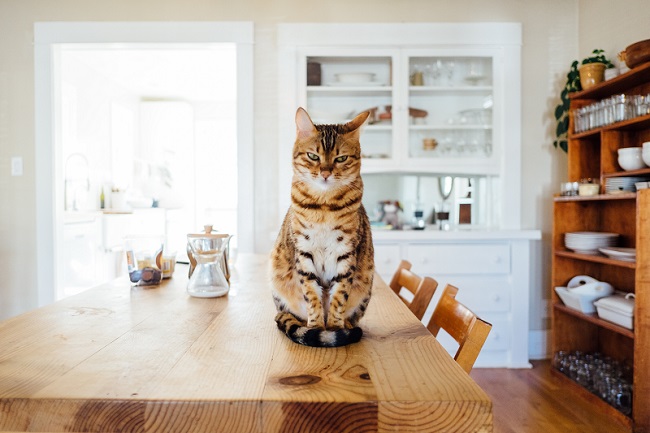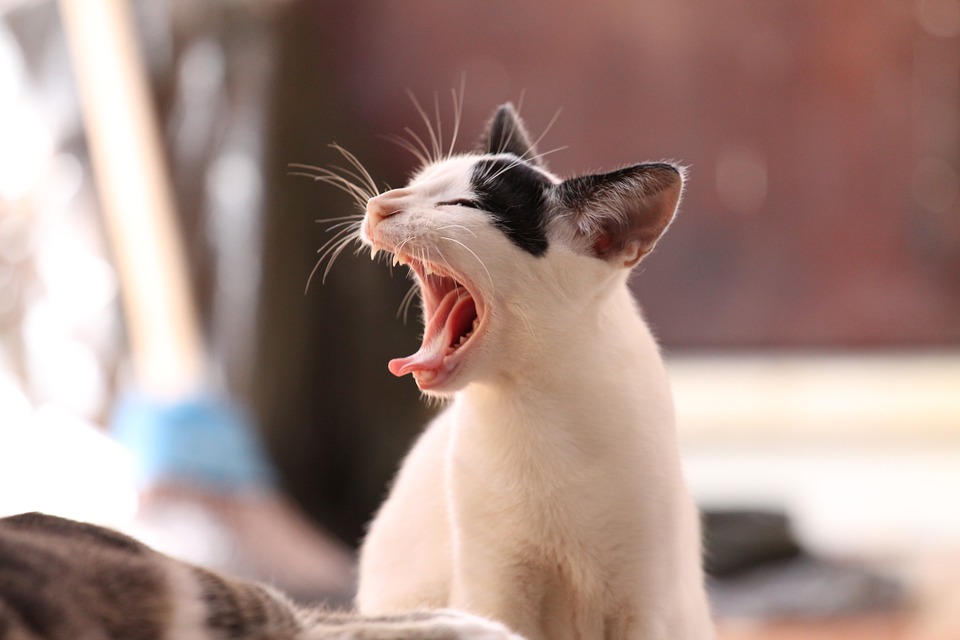There is no good reason to have an animal in your kitchen. It would be very unpleasant to find your dog’s hair mixed with your food. However, the main reason you should not have animals in your kitchen is that pets carry a lot of dirt.
If it is customary to put dog dishes in the kitchen, consider having a specific place only for this. Not only can they be a source of contamination, but they can also compromise the quality of pet food.
Food poisoning is common in this area for both pets and humans. Pets should have their own dedicated utensils, and food bowls should be cleaned with a separate cleaning agent.
The owner and the animal can be exposed to food poisoning, and this danger is increased when raw food is fed directly to animals. Poor processing and storage problems are also important causes of animal food poisoning.
Why Animals Should Not Be Allowed in the Kitchen?
Animals carry viruses and bacteria and can spread physical and microbial contaminants. Their fur and secretions can contaminate areas where we usually place our food. This can result in various effects, ranging from simple allergies to stomach upset.
The real problem, however, is pet waste. Fecal matter carries parasites and bacteria. Therefore, it is essential to prevent pets from spreading their feces. Even when returning from a walk, it is vital to wash their feet and ensure they do not enter the kitchen.
Illnesses associated with food contamination from animal handling can be bacterial or viral. In the first case, symptoms are abdominal pain, diarrhea, and vomiting. In this case, medical attention and treatment may be required.
If the infection is viral, the malaise will disappear in 3-4 days. In all cases, however, it is crucial to seek medical attention.
Petting a dog and then continuing to cook in the kitchen can cause infection. Feeding your pets the food you are using is also a bad habit. It doesn’t matter if it is raw or cooked. Avoid touching the animal while cooking, and wash your hands after cooking.
It is also essential that your pet’s vaccines and parasite treatments are up to date. This process helps reduce the risk of contamination, especially from bacteria.
Another thing to keep in mind is the animal’s food. The safest way to feed your pet is to use pre-cooked food.
Cooked food should be stored properly to prevent spoilage. It is essential not to leave leftovers in your pet’s food bowl.

Recommendations for Pets and Kitchens
1) A Place of Their Own
It is best to have a dedicated eating area for the animal separate from the kitchen. If there is not enough space, it is essential to remove the food bowl as soon as they are done eating.
2) The Kitchen Is Not a Bathroom or Toilet
Don’t let your pets do their business inside the house. Animal feces are highly contaminating and can carry disease.
3) Do Not Give Leftovers From Meals
This will prevent the animal from becoming infected with the poison. Salmonella is one of the most common bacterial infections.
4) Use Different Cleaning Products
Washing your pet’s utensils and yours with the same sponge or dish brush is not recommended. It is also harmful to allow your pet to eat from the same dish as you. Pets should use their own plates and food bowls.
5) No Jumping Around The Kitchen Table
It is common for cats to like to wander around the kitchen. This habit is a sign of kindness. However, diseases can also be transmitted through animal fur. It is advisable to teach them not to climb on kitchen furniture.

Share your thoughts with us in the comments below!

1 thought on “Why Pets Shouldn’t Be Allowed In The Kitchen?”